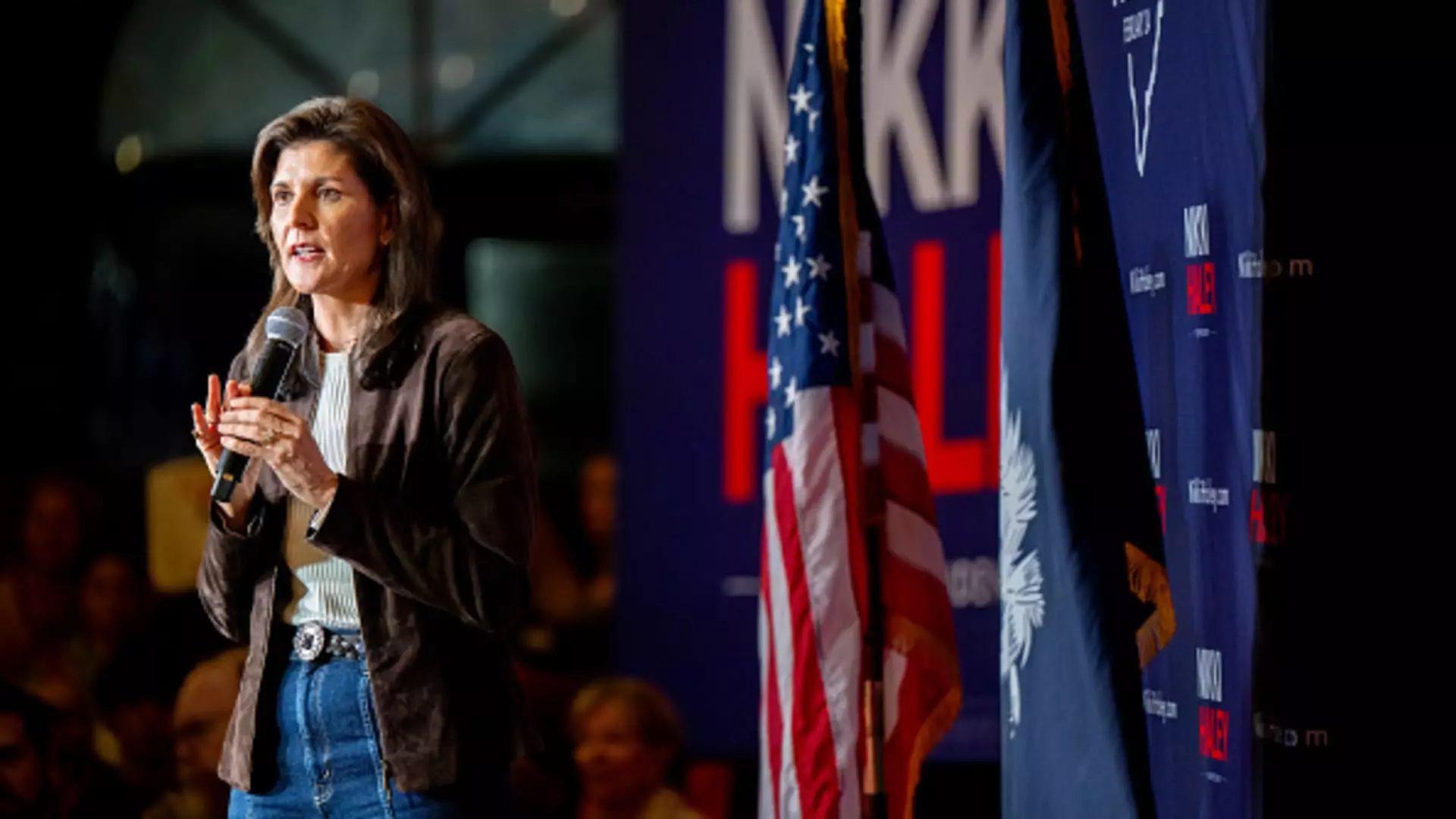Nikki Haley, the former U.N. ambassador and Republican candidate, experienced a disappointing outcome in Nevada’s Republican presidential primary. NBC News projected that Haley lost to “none of these candidates,” highlighting the unconventional nature of the contest. While Haley was the only Republican candidate on the ballot, Nevada voters were given the option to vote for “none of these candidates.” This unique feature of the primary adds a layer of complexity to the political landscape.
The Divide between Parties
Behind the unconventional primary in Nevada lies a deep-seated rift between the state’s Republican Party and the Democratic-controlled state legislature. In 2021, the legislature implemented a new election law requiring the state to hold primary elections, thereby shifting away from the traditional caucus format. The motive behind this change was to increase participation in the nominating contests. However, the Nevada Republican Party opposed this move and decided to hold its own caucuses, effectively ignoring the primary. This led to a situation where Republicans find themselves competing in two different presidential contests in Nevada.
The stakes are high in Nevada, as the caucus winner will be allocated delegates towards the 1,215 needed to secure the nomination. Former President Donald Trump is virtually unopposed in the caucus, benefiting from his loyal base of support. On the other hand, Haley made a strategic decision to appear on the primary ballot rather than the caucus, limiting her chances of gaining delegates. This calculated move reflects the challenges faced by Haley as she navigates the path to the nomination.
Strategic Decision-Making
Haley’s campaign manager, Betsy Ankney, downplayed the significance of the Nevada contests, stating that they had not invested any resources into the state. She also expressed criticism towards the Republican party-run caucus system, which favors Trump due to his loyal base. The primary presents a different landscape, with the option of “None of these candidates” on the ballot. Ankney highlighted their refusal to pay a significant fee to participate in a process perceived as rigged. It is evident that Nevada has not been a priority for Haley’s campaign, and they have chosen to focus their efforts elsewhere.
As the primary season progresses, Haley’s electoral path narrows. Even if she finishes second in South Carolina, her home state where she once served as governor, she has pledged to continue her campaign. However, the odds are stacked against her, as polls show Trump leading in South Carolina. Haley’s strategy has evolved to include sharper attacks on Trump, arguing that he is a weaker choice to go head-to-head with President Joe Biden in a general election. Her campaign has produced ads criticizing Trump’s age and temperament, portraying him as unhinged. By highlighting these qualities, Haley attempts to position herself as a more viable alternative to Trump.
As the primaries unfold, it is clear that Haley faces an uphill battle in securing the Republican nomination. Nevada’s unconventional primary, the divide between the parties, and the dominance of Trump create significant obstacles for her campaign. Nevertheless, Haley remains determined to continue her fight, emphasizing her strengths while challenging Trump’s suitability for the general election. Only time will tell if her strategy pays off, and if she can overcome the formidable political landscape in her quest for the nomination.

Leave a Reply